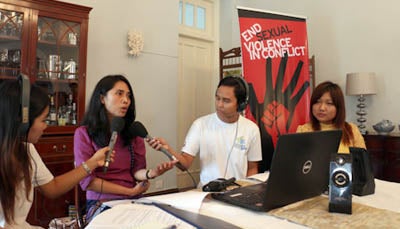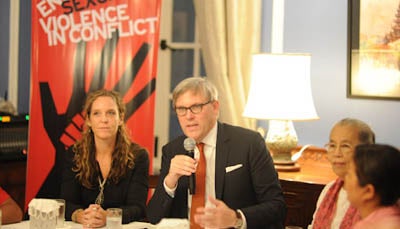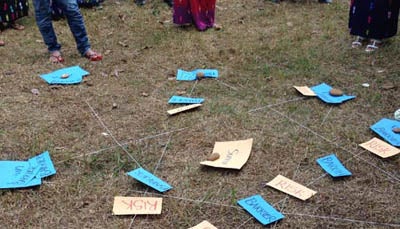Myanmar became the 150th country to endorse the Declaration of Commitment to End Sexual Violence in Conflict in the run up to a landmark Global Summit to end Sexual and Gender-based violence on the 6th June 2014. The declaration contains a set of practical and political commitments to end the use of rape and sexual violence as a weapon of war. Myanmar Deputy Foreign Minister, Thant Kyaw and representatives from Myanmar’s civil society joined government ministers, military officials, aid workers and civil society leaders from more than 100 countries at the “End Sexual Violence in Conflict Summit,” in London from the 10th - 13th June, 2014.

In parallel to the Global Summit in London, the British Embassy, Yangon, hosted a series of activities to raise awareness of the need to establish a survivor centered approach, break the culture of impunity and hold perpetuators accountable for acts of sexual violence. As part of these activities, Mi Mi Thin Aung, UNFPA’s National GBV Coordinator, participated in a round table national radio programme, hosted by BBC Media Action, with fifteen young people. Mi Mi Thin Aung said, “We discussed what sexual violence is in conflict and why it happens. We explored concrete examples about how young people can help to prevent it. This radio discussion is really important for young people in conflict areas as many of them are not aware or know very little about this issue.”
The activities concluded with a Technical Expert Panel Discussion chaired by the British Ambassador, Mr. Andrew Patrick, with UNFPA International GBV Coordinator, Elizabeth Pender, Hkawng Gan – case worker from Metta Development Foundation working in a Women and Girls Centre in Kachin and Professor Than New - a member of the Myanmar National Human Rights Commission. The audience was made up of members from civil society, international NGOs, UN representatives and the diplomatic community.


Each WGC includes a centre manager, case workers, response officers and prevention officers. “In Kachin state we have already seen the number of women and girls visiting the centres double between February and March 2014, and quadruple between March and April. I think this indicates that there is a demand and need for these centres, but we also have to build trust and relationships. We have to demonstrate to women and girls that their safety and security is our priority,” said Elizabeth Pender of UNFPA.


